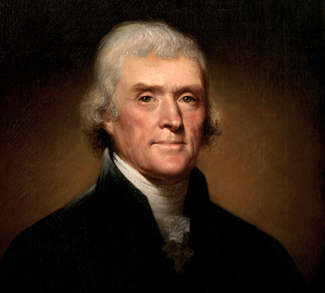Revolutionaries Inside the Capitol
Mini Teaser: America's founding is a gripping tale of rivalry, treachery and ultimately triumph. The divisive politics of today are nothing compared to those now celebrated on the cliffs of Mt. Rushmore.
THE HEIDLERS do not exaggerate in calling Henry Clay the essential American. He remains a pivotal figure in what has been called “national greatness conservatism”—bridging the decades from Hamilton’s nation building through his own American System to Lincoln’s singular mix of Hamiltonian energy and Jeffersonian regard for the individual. Clay’s death in June 1852 evoked emotions transcending regional or political allegiances. Lincoln, then a retired one-term congressman practicing law in the Illinois capital of Springfield, wrestled with his public eulogy of the man he professed “my beau ideal of a statesman.” His speech, prepared in haste, disappointed his listeners, but no more than it frustrated Lincoln himself. “The spell—the long-enduring spell—with which the souls of men were bound to him, is a miracle,” concluded Lincoln, in words eerily prescient. “Who can compass it?”
“On his last journey home,” the Heidlers tell us of Clay:
The pounding cylinders of his locomotive joined a chorus of machined progress that had become an American expectation, a march that rarely paused for anything. It paused only briefly for Clay’s passing. Americans felt in their bones the inevitability of material improvement as they saw the future dance to the music of roaring steam whistles atop grand riverboats and heard the pinging of spikes driven for new iron rails and more locomotives. That summer evening in 1852, one of those locomotives pulled Henry Clay into the American twilight, a full moon waxing.
And you thought they didn’t write history like that anymore.
Richard Norton Smith is a biographer and presidential historian. Past director of five presidential libraries, he currently is a Scholar in Residence at George Mason University. For the last ten years he has been working on a life of Nelson Rockefeller.
Pullquote: If there is an overriding theme, it is the pervasive egalitarian instinct that shaped American politics long before Andrew Jackson built a fabled political career on Us versus Them.Image: Essay Types: Book Review
Essay Types: Book Review 